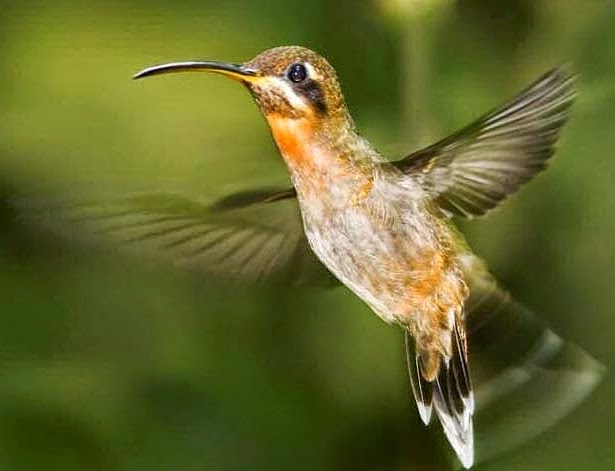 |
| (Photo from Birds & Birds) |
Common name:
band-tailed barbthroat (en); balança-rabo-de-Rücker (pt); ermite de Rücker (fr); ermitaño barbudo colibandeado (es); weißbinden-schattenkolibri (de)
Taxonomy:
Order Apodiformes
Family Trochilidae
Range:
This species is found from southern Belize and eastern Guatemala south to north-western Venezuela, western Colombia and western Ecuador.
Size:
These birds are 10-11 cm long and weigh 5-7 g.
Habitat:
The band-tailed barbthroat is mostly found in the understorey of lowland rainforests, also using mountain rainforests, forests edges, mature and dense second growths, moist scrublands and plantations.
Diet:
They feed mainly on the nectar of tubular flowers, namely Heliconia, Costus and Calathea, also taking some small spiders and insects.
Breeding:
Band-tailed barbthroats can breed all year round, varying among different parts of their range. The nest is a small cup made of rootlets, fungal rhizomes and fine plant materials, usually attached with spider webs to the underside of a palm frond, fern or Heliconia leave. There the female lays 2 eggs which she incubates alone for 17-18 days. Unlike most other hummingbirds, males may provide females with food during incubation. The chicks fledge about 24 days after hatching.
Conservation:
IUCN status – LC (Least Concern)
This species has a large breeding range and is described as uncommon. There is no available information regarding population trends.







